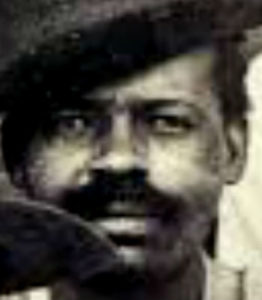
Nearest Green
*The birth of Nearest Green c.1820 is celebrated on this date. He was a Black master distiller of alcohol.
Nathan "Nearest" Green was a Black slave owned by a business known as Landis & Green, who hired him out to Dan Call for a fee. Dan Call was a preacher, grocer, slave owner, and distiller. In the 1850s, Jack Daniel went to work for Dan Call, a young white-American boy. According to the company, the preacher was a busy man, and when he saw potential in young Jack, he had Green teach him how to run his whiskey still. When introducing Green to an 8-year-old Jack Daniel, Call says, "Uncle Nearest is the best whiskey maker I know of." The call reportedly said to Green, "I want [Jack] to become the world's best whiskey distiller if he wants to be. You help me teach him."
As the master distiller, Green taught distilling techniques to Daniel, founder of the Jack Daniel Tennessee whiskey distillery. Green was the first Black master distiller on record in the United States. Green was married to Harriet Green, and they had eleven children together: nine sons and two daughters. Four of their sons, Louis, George, Jesse, and Eli, are listed in the 1870 census. Seven sons and daughters are listed in the 1880 federal census. Green was one of a few slaves who worked for Call and stayed with him after Emancipation. Known also as "Uncle Nearest," he played the fiddle. This was passed down to his son, Jesse Green.
In June 2016, The New York Times published a story identifying Daniel's true teacher as Green, one of Call's slaves. The newspaper said that the Green story has been known to historians and locals for decades, even as the distillery officially ignored it. Green's story, built on oral history and the thinnest of archival trails, may never be definitively proved. A USA Today article published in July 2017 corrected the spelling of his name (Nearis) and confirmed that Jack Daniel said his correct name was Nathan "Nearest" Green. Green served as the master distiller. One biographer said, “Only a few years older than Jack, [Green] taught him all about the still.”
American slavery officially ended with the Thirteenth Amendment in 1865. Daniel opened his distillery a year later, immediately employing two of Green's sons, George and Eli Green. At least three of Green's sons were a part of the Jack Daniel Distillery staff: George Green, Edde Green, and Eli Green. At least four of Nearest's grandchildren joined Jack Daniel's team: Ott, Charlie, Otis, and Jesse Green. Seven generations of Nearest Green descendants have worked for Jack Daniel Distillery, with three direct descendants continuing to work there.
Author Fawn Weaver launched the Nearest Green Foundation to commemorate Green. It is responsible for a new museum, memorial park, and book about his life. In addition, the Foundation has established college scholarships for its descendants. In July 2017, Uncle Nearest, Inc. created a bottle of whiskey honoring Nearest Green's legacy and debuting "Uncle Nearest 1856 Premium Whiskey. Uncle Nearest 1856 Premium Whiskey" by working with two Tennessee distilleries, but not Jack Daniel's Distillery. In August 2017, the Brown-Forman Corporation, which owns the Jack Daniel's Distillery and brand, officially recognized Green as their first head stiller (now called a master distiller), adding him to their website.
In October 2017, they added his legacy to their tours. In September 2017, The Nearest Green Foundation announced the inaugural class of descendants receiving complete college and grad school scholarships to continue their ancestor's legacy of excellence. The Foundation is funded by selling Uncle Nearest Premium Whiskey and Jack Daniel's official biography, Jack Daniel's Legacy.